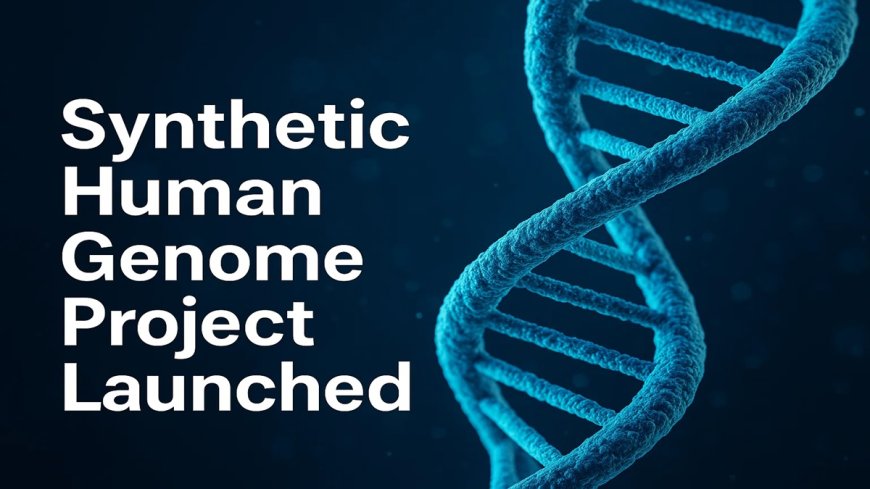UK Launches Project to Build Human DNA from Scratch
The UK has started the Synthetic Human Genome Project to construct human DNA from scratch. With a £10 million grant, scientists aim to create artificial chromosomes for potential medical breakthroughs.

UK launches bold Synthetic Human Genome Project: Can human DNA be built from scratch? The UK has officially launched the Synthetic Human Genome Project, a groundbreaking initiative, aiming to construct human DNA from scratch.
New Delhi: In what could mark a turning point in modern biology, a team of scientists in the UK has officially begun work on building human DNA from scratch. Backed by a £10 million grant from the Wellcome Trust, the newly launched Synthetic Human Genome Project is being described as the world's first serious attempt to assemble parts of human genetic code molecule by molecule. The research, which builds upon the legacy of the Human Genome Project completed 25 years ago, seeks to go beyond reading DNA to actually constructing artificial chromosomes. If successful, it could lead to next-generation therapies that regenerate damaged organs, treat age-related illnesses, and even correct genetic disorders.
What is the project about? Led by Dr Julian Sale at the MRC Laboratory of Molecular Biology in Cambridge, the initiative involves synthesising human DNA segments in the lab using chemical processes, rather than extracting them from existing cells. Calling it \"the next giant leap in biology\", Dr Sale told BBC News that the technology could one day generate disease-resistant cells capable of repopulating organs like the heart, liver, and immune system. \"The sky is the limit,\" he said, underscoring the potential benefits for long-term human health.
From reading to building the genome The Human Genome Project allowed scientists to read the entire genetic instruction manual of the human body. Now, researchers want to write it. The goal is to assemble synthetic chromosomes and study how specific genes control processes like development, cellular repair, and disease response. If successful, this could unlock breakthroughs in treating inherited diseases and slowing age-related degeneration.
Ethics under the spotlight Despite its scientific promise, the project has triggered warnings from bioethicists and advocacy groups. Dr Pat Thomas of Beyond GM cautioned that while the science could save lives, it might also be weaponised. \"We like to think all scientists are here to do good, but science can be repurposed for harm,\" she said. Professor Bill Earnshaw of Edinburgh University added, \"The genie is out of the bottle. Even with restrictions, a determined actor could synthesise anything with the right equipment.\" If a group with the right machinery wanted to synthesise dangerous material, it would be difficult to stop them.
Parallel ethics study to shape public trust To address these concerns, a parallel social science programme is being established under Professor Joy Zhang at the University of Kent. The team will gather public feedback and assess how people perceive the ethical boundaries of creating synthetic life. Zhang emphasised the need for inclusion and foresight: \"We want to understand how people relate to the technology, how it can be beneficial, and what concerns or hopes they might have.\"
Why act now? Dr Tom Collins, head of research programmes at the Wellcome Trust, acknowledged the risks involved but said the organisation believed responsible innovation was better than delay. \"This technology is coming. If we don't engage now, we lose the chance to shape it responsibly,\" he said.
What's Your Reaction?
 Like
0
Like
0
 Dislike
0
Dislike
0
 Love
0
Love
0
 Funny
0
Funny
0
 Angry
0
Angry
0
 Sad
0
Sad
0
 Wow
0
Wow
0


















































































































































